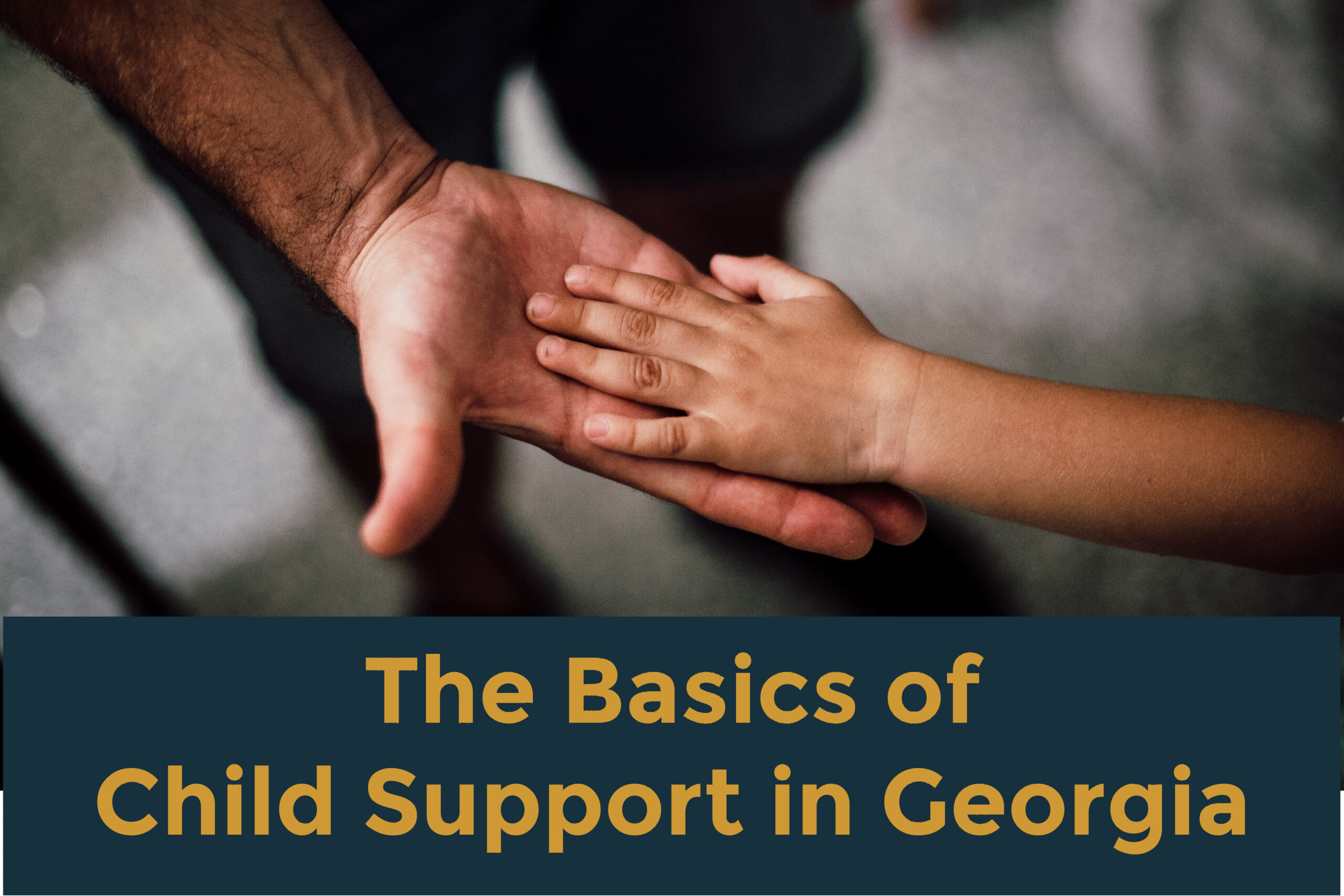Getting divorced is one thing…paying child support is another.
Here are the basics about paying and collecting child support in Georgia.
First, we understand that an immense amount of energy is involved in any divorce. And whenever children are involved, that’s a whole new level of emotional heavy lifting.
At ProPrudence, we believe that no parent should be left with the short end of the stick simply because they didn’t know any better.
You may be here with questions about calculating child support, modifying a child support agreement, or about enforcing an existing child support order. In this article, we’ll discuss the basics of child support in Georgia to arm you with the knowledge you need for your child support case.
Who Pays Child Support in Georgia?
Whenever two parents divorce, they must decide who will take care of the child(ren). The parent who has custody more than 50% of the time is known as the custodial parent; the other is known as the noncustodial parent.

If the parents spend equal amounts of time with the child(ren), the court will designate one parent (usually the one with lesser child support obligations) as the custodial parent.
The parent responsible for child support payments is known as the obligor parent.
However, just because you have been named the noncustodial parent does not mean that you will definitely have to pay child support.
Amount of Child Support Payments
Georgia uses an income shares model to determine how much the obligor parent is responsible for. This model estimates the total amount that parents would spend on a child in an intact family unit, then splits this amount proportionally according to both parents’ incomes.
In the past, child support payments would only be calculated based on the noncustodial parent’s gross income. This new model allows the courts to take multiple factors into consideration to arrive at a payment plan that’s fair for both parents.

If you anticipate being the noncustodial parent, this does not mean you will definitely have to pay child support. The court will factor in both parents’ finances, including:
- Wages & commissions
- Disability payments
- Military pensions
- Retirement account payments
- Self employment earnings
- Investment earnings
- Child support from a separate/different case
- Taxes on self employment income
- Children from another relationship (standard child related tax deductions)
- Adjustments for childcare and/or health insurance
Estimating your child support payment or obligation can be done here.
Once the standard child support amount has been determined, either parent—or the judge—may adjust this amount based on the unique circumstances of each case.
Changing a Child Support Order
As with any situation involving multiple humans—some of them minors—the initial arrangement may become outdated or inconvenient.
Georgia law allows either parent to make a petition to modify an existing child support order. In most cases, the obligor parent is likely seeking a reduction in payment while the obligee parent is typically seeking an increase in payment.
The Division of Child Support Services will review both parents’ financial circumstances—and the child custody arrangement—to see if a modification should be made. The amount of child support paid by the obligor parent may go up, down, or even stay the same.
While not required, we recommend speaking with an attorney prior to filing for a modification. A family attorney can help you work through the tax ramifications of modifying your child support order.

How to Pay Child Support
Although your child support payments will be going to your ex-spouse, payments are all done through the Georgia Family Support Registry (GFSR).
Payment of child support can take the following forms:
- Cash
- Check
- Credit Card
- Western Union
- Bank Transfer
- Direct Deposit
- Venmo
- Zelle
In addition to processing and dispersing the funds, GFSR will keep detailed records of all payments made.
Enforcing Child Support
In most cases, the Georgia Family Support Registry will pull payments directly from the obligor parent’s paycheck. However, there are some instances where your ex-spouse defaults on their financial obligations and falls behind on child support.
Thankfully, you have options for collecting the payments you’re owed.
- File a Contempt of Court Action
- Request an Income Withholding Order to have the court collect child support payments by deducting them from your spouse’s paycheck
- Obtain a Writ of Fieri Facias to place a lien on their property
- File for wage garnishment
- Contact Georgia’s Division of Child Support Services (DCSS)
DCSS has the authority to enforce child support matters and can help you with any of the above options.
Conclusion
Having children can complicate your divorce, but it doesn’t have to. Especially if you have an experienced and knowledgeable family attorney on your side.
Unfortunately, no one can definitively state that they will not get into a child custody battle during their divorce. We highly recommend retaining a lawyer to represent you throughout your divorce and to defend your parental rights.
If you live in Georgia and are looking for a divorce lawyer or family law attorney to assist you with a child support case, ProPrudence can help. Our proprietary software can help you connect with an attorney via video chat so you can learn more about your rights and what to expect.





